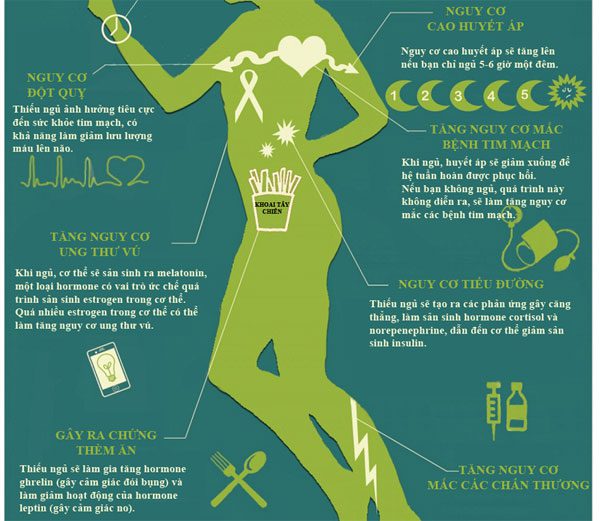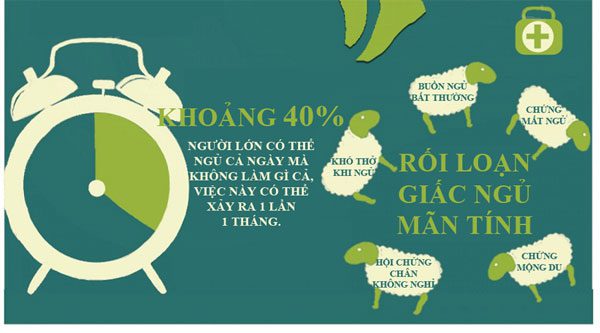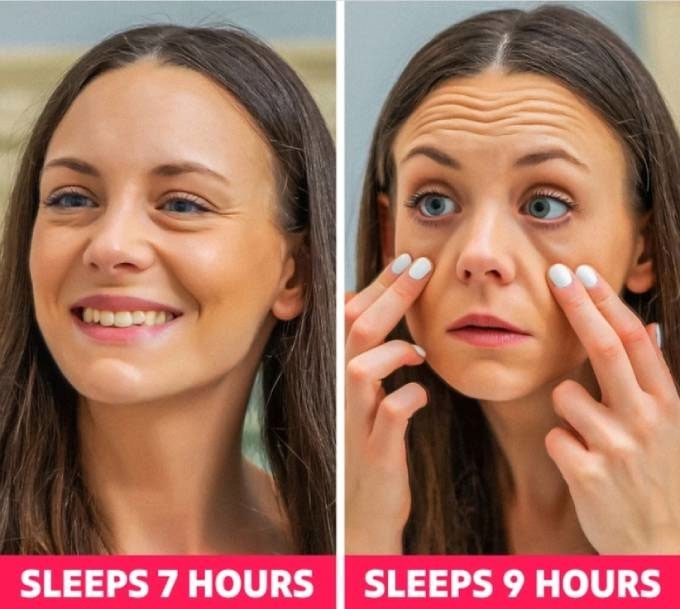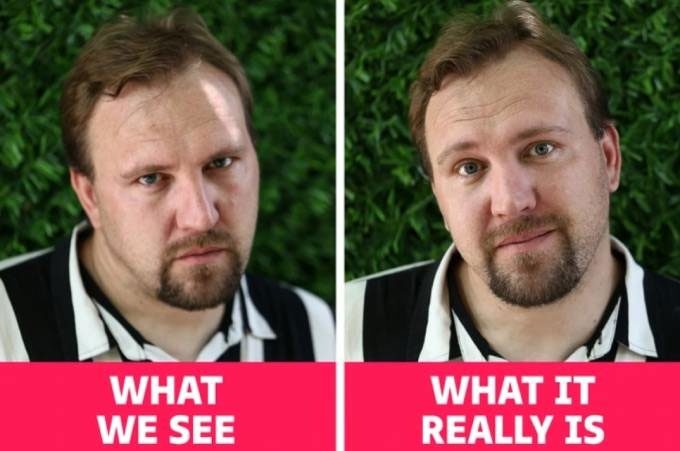The risk of high blood pressure increases when you only sleep 5-6 hours a night. Sleep deprivation raises the risk of breast cancer, depression, and cognitive decline…
>>> Insomnia leads to the loss of brain cells in humans



In addition to the above symptoms, sleep deprivation can cause other conditions such as:
Dark circles and puffiness around the eyes
Although sleep deprivation is often associated with dark circles and puffiness under the eyes, oversleeping (more than 9-10 hours a day) can also lead to similar outcomes. Insufficient sleep can cause pale skin and more visible blood vessels, leading to the formation of eye bags.
Difficulty concentrating
Most people are aware that sleep deprivation negatively affects cognitive ability. Oversleeping also weakens decision-making and problem-solving skills, along with impairing memory function.
Researchers have determined that sleeping 7-8 hours each day is essential for maintaining cognitive health and focus.
Dry skin and increased wrinkle formation

Sleeping over 9 hours each day can easily lead to wrinkled, sagging skin.
Through research, scientists have found that sleeping habits affect skin condition. Insufficient sleep can lead to dehydration, causing the skin to become dry and lackluster. Conversely, oversleeping can also have similar effects. The reason is that spending more than 8 hours in bed can disrupt the body’s ability to maintain water balance. This can lead to early wrinkle development and sagging skin.
Acne breakout
Prolonged sleep deprivation can lead to the development of acne. Cortisol levels, a hormone related to stress, increase when you are sleep deprived. This leads to excessive activity of the sebaceous glands, which can clog pores and cause acne.
More impulsive and hasty behavior
Scientists at Clemson University found a correlation between sleep and self-control. Those who do not get enough sleep tend to act impulsively and struggle to resist temptation. This can lead to more mistakes and higher chances of regretting certain actions and decisions.
Aggressive appearance

Lack of sleep makes your facial expression appear more irritable and aggressive than it really is.
According to recent research conducted at UC Berkeley, sleep deprivation can impair our ability to accurately interpret facial expressions. When tired, we may confuse normal expressions with aggression or misinterpret other signs on faces, leading to incorrect conclusions. This is a common issue faced by healthcare professionals and law enforcement personnel who often suffer from sleep deprivation due to long working hours.



















































